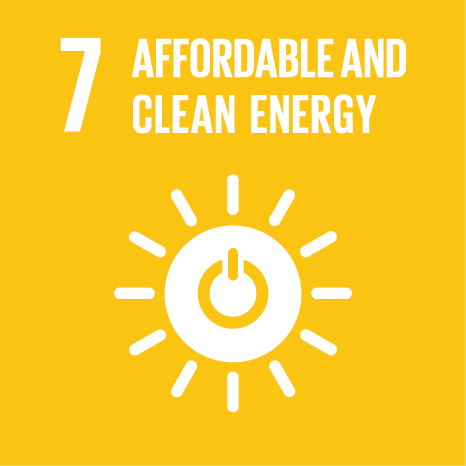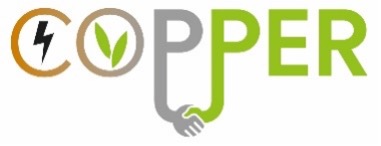As energy prices have surged throughout Europe, affecting all households (directly or indirectly) through their energy bill, citizens increasingly want to contribute to the renewable energy transition. Next to market parties and government, the role of citizens in energy communities (ECs) in developing Positive Energy Districts (PEDs) can and should be strengthened, and wider groups of citizens can be involved. From this shared problem and understanding across Europe, the project will work on ‘Creating, Optimizing and Planning Positive EneRgy districts while connecting citizens’ energy at different geographical levels’ (COPPER). The first objective is to co-develop P2P citizens-based support- and information systems that are inclusive of energy-vulnerable groups and which foster active energy citizenship. In P2P platforms information is exchanged on the energy transition, support and coaching are given, and citizens will be trained to become civil energy coaches. This will start from specific neighborhoods, and lead to exchanges between different communities and (eventually) in the wider region. Citizens' upport and information systems more generally will be identified, based on desk research and contact with key stakeholders and resident groups in each country (see letters of support). Then these platforms will be evaluated in terms of the autonomous role of citizens, facilities offered, sharing of tools, P2P help and coaching, nature of topics and challenges discussed among residents, degree of inclusiveness, and potential for innovation towards PEDs.
Moreover, PEDs need to be embedded within the wider energy system by creating reliable entities such as organized ECs with intermediary roles, linking supply, demand, and storage in the energy market. The second objective is to develop different models based on certain ‘archetypes’ of energy communities. This means the modeling of differences in both scale and configuration of ECs, in different country settings, to identify how different energy technologies and their set-ups would function under different governance rules, including rules for grid tariffs and energy taxes. This contains modeling of the electricity supply and demand of households, buildings or businesses in a specific community and district, as well as sector coupling with local heating, cooling, and transport demands, where applicable. The so-called Strategic Technology and Energy Governance Modelling (STEGOM) leads to quick identification of energy supply and demand of all residents in ECs and their institutional environment.
By zooming out toward socio-political issues, the project develops new concepts for strategic spatial energy planning through co-creation with neighborhoods and community networks in the wider urban region. The third objective is to develop innovative governance approaches to integrated spatial energy planning. Here local ECs are situated in wider geographic and energy system settings creating larger-scale PEDs.
COPPER’s approach to PEDs starts from the framework of human-centric PEDs. Such a human-centric and critical framework keeps five key dimensions in mind: 1) a critical view on uncertainty, risk perception, and trust; 2) distributive justice, rights, and responsibilities; 3) recognition justice- and people-place relations; 4) procedural justice; 5) awareness of routines, capabilities and lived experiences of people and stakeholders. In COPPER local ECs in Portugal, the Netherlands, Denmark and Norway share experiences in an interdisciplinary and intersectoral way. Concretely, this project facilitates P2P support systems, models energy markets, and improves strategic and integrated spatial energy planning. Upscaling of the solutions is secured via different national and European partners, such as Rescoop.EU (Letter of Support), the federation of European energy cooperatives
| Research Centre | Research Group | Role in Project | Begin Date | End Date |
|---|---|---|---|---|
| CIS-Iscte | PsyChange: Psychology of societal change | Partner | 2024-02-02 | 2027-01-31 |
| Institution | Country | Role in Project | Begin Date | End Date |
|---|---|---|---|---|
| STICHTING RADBOUD UNIVERSITEIT (RU) | Netherlands | Leader | 2024-02-02 | 2027-01-31 |
| STICHTING HOGESCHOOL VAN ARNHEM ENNIJMEGEN HAN (STICHTING HOGESCHOOL VAN ARNHEM ENNIJMEGEN HAN) | Netherlands | Partner | 2024-02-02 | 2027-01-31 |
| AALBORG UNIVERSITET (AALBORG UNIVERSITET) | Denmark | Partner | 2024-02-02 | 2027-01-31 |
| STIFTELSEN RURALIS INSTITUTT FOR RURAL- OG REGIONALFORSKNING (STIFTELSEN RURALIS INSTITUTT FOR RURAL- OG REGIONALFORSKNING) | Norway | Partner | 2024-02-02 | 2027-01-31 |
| EBO CONSULT AS (EBO CONSULT AS) | Denmark | Partner | 2024-02-02 | 2027-01-31 |
| EIGERSUND KOMMUNE (EIGERSUND KOMMUNE) | Norway | Partner | 2024-02-02 | 2027-01-31 |
| SVAHEIA EIENDOM AS (SVAHEIA EIENDOM AS) | Norway | Partner | 2024-02-02 | 2027-01-31 |
| Name | Affiliation | Role in Project | Begin Date | End Date |
|---|---|---|---|---|
| Susana Batel | Research Fellow (DPSO); Integrated Researcher (CIS-Iscte); | Local Coordinator | 2024-02-02 | 2027-01-31 |
| Minh Thu Nguyen | Associate Researcher (CIS-Iscte); | Researcher | 2024-11-25 | 2027-01-31 |
| Reference/Code | Funding DOI | Funding Type | Funding Program | Funding Amount (Global) | Funding Amount (Local) | Begin Date | End Date |
|---|---|---|---|---|---|---|---|
| DUT/0003/2022 | -- | Contract | FCT - Concurso 2022 da Parceria Europeia Driving UrbanTransiti ons (DUT) - Portugal | 1444499 | 124680 | 2024-02-02 | 2027-01-31 |
No records found.
No records found.
No records found.
No records found.
No records found.
With the objective to increase the research activity directed towards the achievement of the United Nations 2030 Sustainable Development Goals, the possibility of associating scientific projects with the Sustainable Development Goals is now available in Ciência_Iscte. These are the Sustainable Development Goals identified for this project. For more detailed information on the Sustainable Development Goals, click here.

 Português
Português





